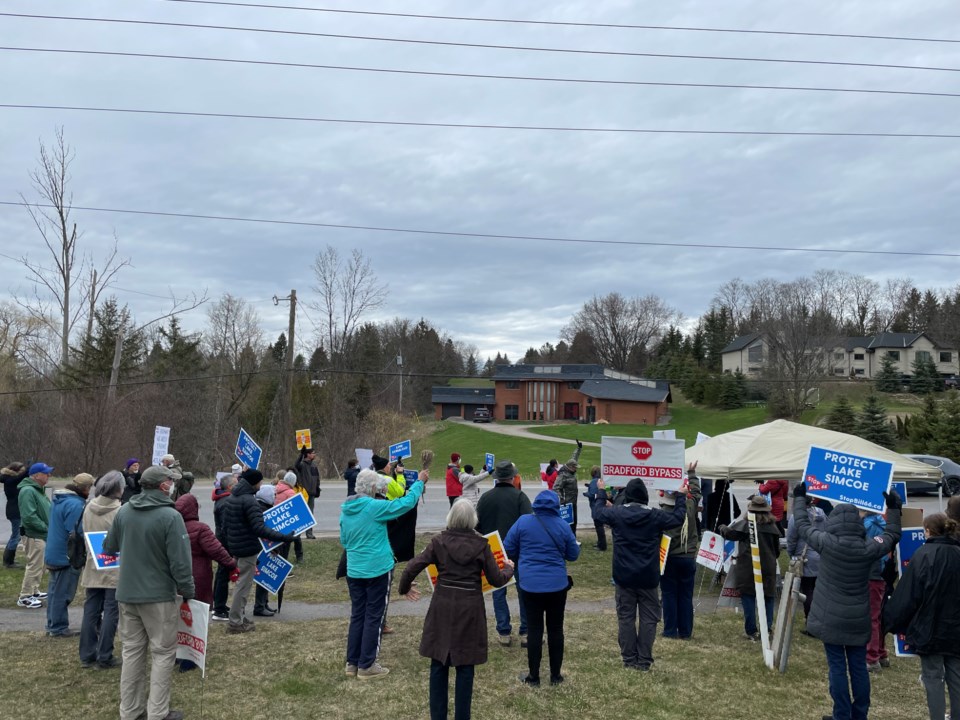Local community and environmental groups are saying they have scored a "big win for public participation" in a court case related to the Bradford Bypass, following a prolonged battle to assess the highway's environmental and health impacts.
In a recently released ruling, the federal court found the decision by federal Minister of Environment and Climate Change Steven Guilbeault to deny a requested federal impact assessment for the project under the Impact Assessment Act was unreasonable. The court found the minister did not explain how or if he had considered key arguments and information included in the request.
“We are delighted the judge agreed with us that the Minister apparently treated our request for designation in a perfunctory manner. ‘In my view, the decision does not meet the threshold for transparency, intelligibility and justification and is unreasonable as a result,' said Angela Furlanetto, justice of the Federal Court," said Bill Foster, of Forbid Roads Over Green Spaces.
This decision opens an opportunity for submitting a subsequent request to designate the highway project for a federal impact assessment. Forbid Roads Over Green Spaces and Rescue Lake Simcoe Coalition, supported by members of the Georgina Island First Nations community, have requested the Environmental Commissioner to explore requirements under the Fisheries Act to further examine the impacts of the project on marine ecosystems in Lake Simcoe.
“Given the federal Environment Commissioner’s most recent report, criticizing the government for failing to meet tree planting and carbon reduction targets, we again submit that building an eight-lane highway through forests and wetlands contributes to the problems Canada is trying to wrestle with," Claire Malcolmson, executive director of Rescue Lake Simcoe Coalition, said in a news release.
Rescue Lake Simcoe Coalition, Ontario Nature, Forbid Roads Over Green Spaces, Environmental Defence, Wilderness Committee, Wildlands League, and Earthroots were represented by lawyers from Ecojustice in the lawsuit.
Concerned groups requested the minister to include the highway project in the federal impact assessment first in February 2021 and then in November 2021; both requests have been denied.
"The second request highlighted changes to Ontario’s regulatory regime, mistakes in the minister’s first assessment, and mounting public concern that the project could proceed without its long-term environmental impacts being studied," reads the news release issued by Ecojustice. "Minister Guilbeault denied the second request, citing no 'material change' to the project."
The groups then challenged this decision in court and stated it undermined the commitment of the federal government to scientific integrity and public participation in the evaluation of major infrastructure projects.
"The court’s decision helps rectify what the groups feared would be a dangerous precedent for federal decision-making," says the news release issued by Ecojustice.
"The groups say the federal government can and must act as a backstop to ensure projects that may have federal environmental effects, like greenhouse gas emissions, undergo meaningful environmental scrutiny before they are allowed to proceed."



